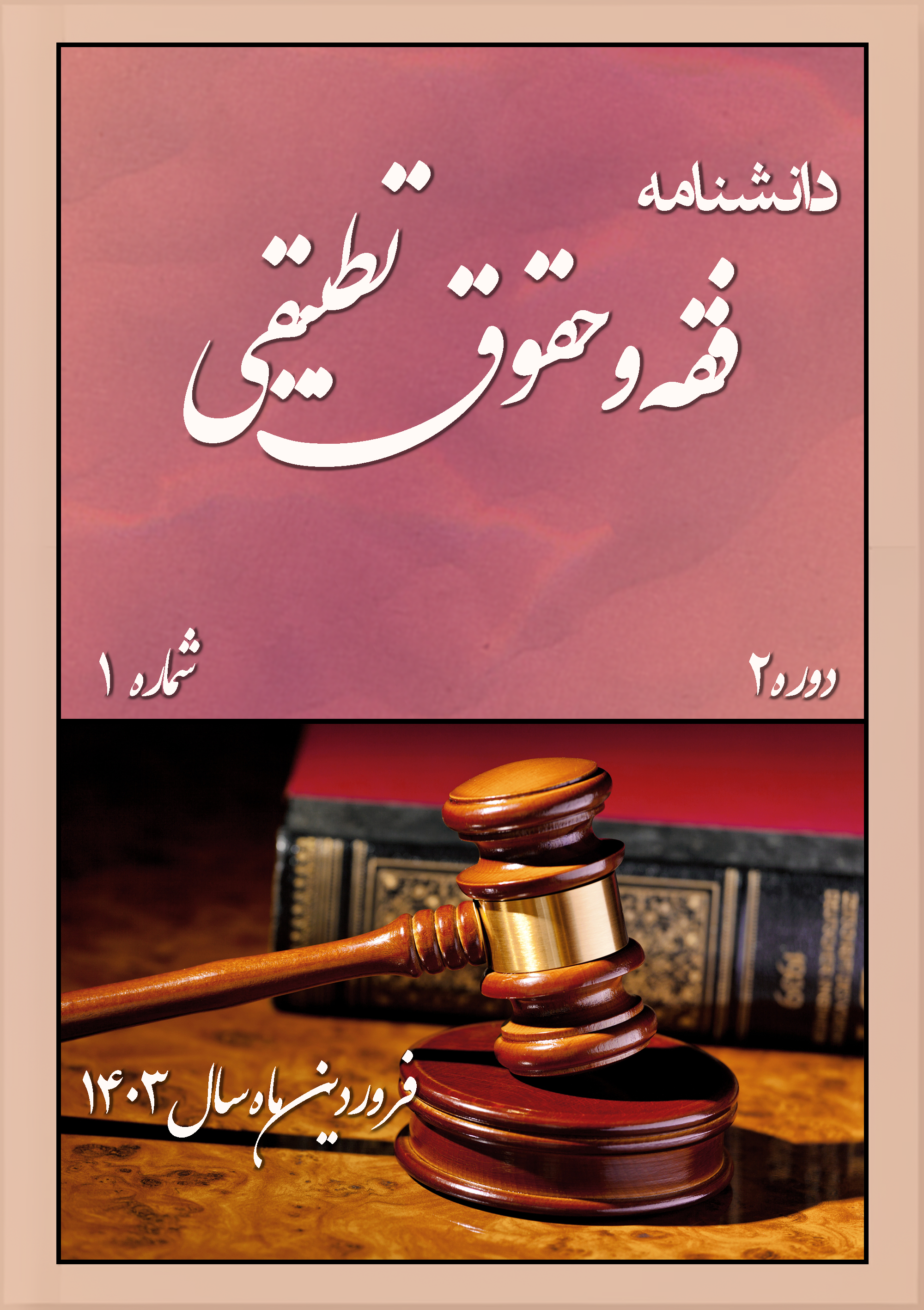A Comparative Study of Judicial and Executive Approaches to Decongestion in the Legal Systems of Iran and England
Keywords:
criminal prosecution, Extreme criminalization, decriminalization , decompressionAbstract
One of the main challenges faced by criminal justice systems such as those of Iran and England is the accumulation of cases and the increase in the prison population. To address these problems, solutions such as criminal diversion have been proposed, which refers to removing the offender from the formal criminal process from the moment of crime detection to the execution of punishment. In England, derived from the common law system, criminal diversion is carefully and extensively applied at different stages, from pre-trial (by the police, prosecutor, and administrative bodies) to trial (by the judge). Even in certain serious offenses, measures are available to remove low-risk individuals from the formal process. In contrast, in Iran little attention has been paid to these measures, and their use is limited and conditional upon circumstances such as the consent of the complainant. This comparative study has been conducted with three objectives: (1) to demonstrate the advantages of the English approach, (2) to identify the weaknesses and barriers to diversion in Iran, and (3) to introduce England’s model of maximum diversion as a framework for reforming Iran’s criminal policy.
Downloads
References
Abbasi Kalimani, A., & Rangchi Tehrani, A. (2019). Manifestations of Decriminalization in the 2013 Islamic Penal Code with Emphasis on Family Crimes. Family Law and Jurisprudence Journal(70).
Aghababaei, A. (2018). Rational Criminal Policy and Principles of Criminalization. Majd Publishing.
Ancel, M. (2022). Social Defense. Ganj-e Danesh.
Ardabili, M. A. (2021). General Criminal Law (Volume 1). Mizan Publishing.
Ashouri, M. (2016). Lessons in Criminal Procedure Law. SAMT Publications.
Ashworth, A. (2005). Sentencing and Criminal Justice. Cambridge University Press. https://doi.org/10.1017/CBO9781139051965
Bayat Kamit, B. (2016). Criminal Policy in Islam and Iran. SAMT Publications.
Duff, R. A. (2007). Answering for Crime: Responsibility and Liability in the Criminal Law. Hart Publishing. https://doi.org/10.1093/acprof:oso/9780199542895.003.0006
Hart, H. L. A. (1963). Law, Liberty and Morality. Oxford University Press. https://doi.org/10.1515/9781503620612
Husak, D. (2008). Overcriminalization: The Limits of the Criminal Law. Oxford University Press. https://doi.org/10.1093/acprof:oso/9780195328714.001.0001
Khazaei, H. (2014). Criminalization in Islamic Jurisprudence and Iranian Law. Maher Publications.
Moradi Pasand, G., Bashirieh, T., & Gholami Doon, H. (2022). The Penetration of Penal Populism into Criminal Domain and Its Impact on Decriminalization Policies. Criminal Law and Criminology Research, 10(20).
Mousavi, M. (2022). The Judge's Role in Judicial Case Reduction. Iranian Criminal Law Quarterly, 11(2).
Najafi Abrandabadi, A. H. (2006). An Introduction to Criminology. Mizan Publications.
Nourbaha, R. (2020). General Criminal Law (Volume 1). Ganj-e Danesh Publications.
Safari, M. (2022). Transformation in Iran's Criminal Justice System. Jungle Publications.
Tonry, M. (2019). Sentencing in Comparative Perspective. University of Chicago Press.
Tonry, M. (2020). Community Penalties and Rehabilitation. Cambridge University Press. https://doi.org/10.4324/9781003060581-36
UK Ministry of Justice. (2023). Data Justice Dashboard.
Zarashki, M., & Jalali, M. (2017). Legal-Administrative Decentralization from Tehran in Light of Constitutional Principles. Islamic Law Research Journal(46).
Downloads
Published
Submitted
Revised
Accepted
Issue
Section
License
Copyright (c) 1403 ستاره قیطران (نویسنده); اصغر عباسی; مهدی کاظمی جویباری (نویسنده)

This work is licensed under a Creative Commons Attribution-NonCommercial 4.0 International License.










